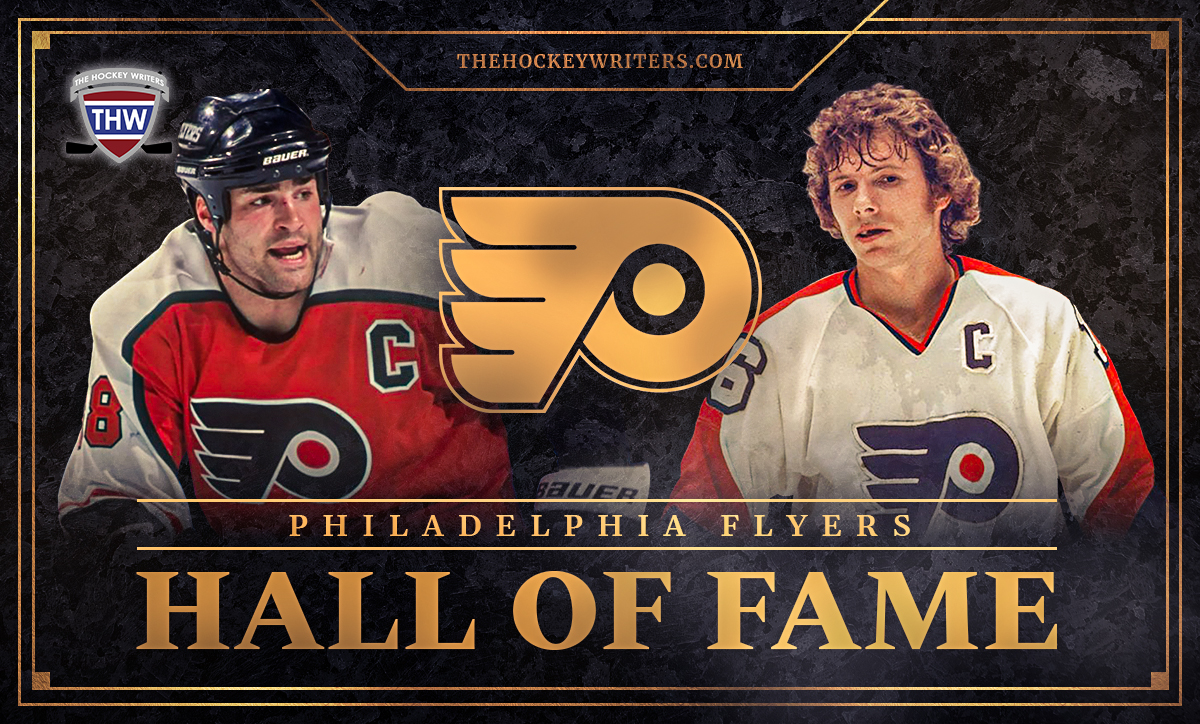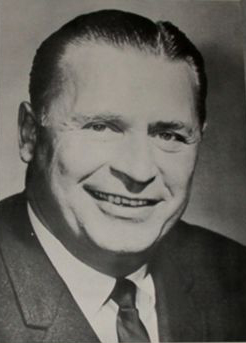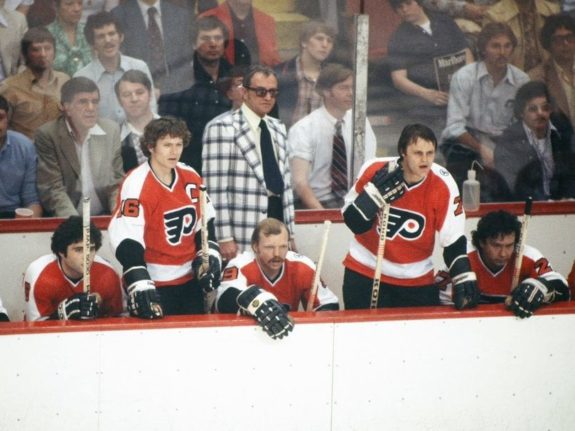Established in 1967, the Philadelphia Flyers have had several hockey legends pass through hallways of their stadiums and offices over the years. When most fans of the franchise think of the Hall of Famers who have been a part of their organization, Bobby Clarke, Bernie Parent, Bill Barber, Mark Howe, and Eric Lindros are just a handful of the names that come to mind.

Of the former Flyers personnel enshrined in the Hockey Hall of Fame in Toronto, Keith Allen’s hockey resume arguably contains the most diverse range of experiences and skills. A former hockey player, coach, and executive, the man nicknamed “Bingo” was part of the Flyers organization from 1967 until his death in 2014. The first head coach in franchise history, he also served as a manager and executive vice-president for the team during his tenure. As a Flyers general manager (GM), Allen was the architect of two Stanley Cup-winning teams.
Playing Career (1941-1957)
The Saskatoon, Saskatchewan native played professional hockey between 1941 and 1957, reaching the NHL for parts of two seasons. With the bulk of his professional career spent in the American Hockey League (AHL), the defenseman played in 28 total games for the 1953-54 and 1954-55 Stanley Cup champion Detroit Red Wings. During parts of two seasons in the NHL, he recorded four assists.
Allen ended his career in the Western Hockey League (WHL) where he played his final season with the Seattle Americans during the 1956-57 campaign. During this season, he served as a player-head coach for the team. His teammate in Seattle that season was then goaltender, and future fellow NHL GM, Emile Francis. Francis went on to serve as GM for the New York Rangers, St. Louis Blues, and Hartford Whalers during a career that spanned from 1964 to 1989.
Head Coach in the WHL (1956-1965)
Following his retirement from playing, Allen transitioned from a player-coach to a full-time head coach after the 1956-57 season. From 1957 to 1965 he served as the head coach for Seattle’s WHL teams, the Seattle Americans (1957-58) and Seattle Totems (1958-1965). A highlight of his minor league coaching career came during the 1958-59 season when the Totems finished their season with an impressive record of 40 wins, 27 losses, and three ties, going on to capture the President’s Cup championship. Over the course of eight seasons in the WHL as a head coach, Allen only had one losing campaign.
Flyers Head Coach (1967-1969)
Allen was hired on as the head coach of the Flyers during their inaugural 1967-68 season. His experience in the minor leagues was appealing to the Flyers as he was an expert in up-and-coming players who would be available in the NHL Expansion Draft. This expertise was critical in securing talented young players who would become important contributors to the franchise.

Over two seasons with the organization, Allen compiled a record of 51 wins, 67 losses, and 32 ties in 150 games. These first two Flyers teams featured players who would later win two Stanley Cups with the franchise, and make their mark on Flyers history, including Gary Dornhoefer, Joe Watson, Ed Van Impe, and Bernie Parent.
Flyers General Manager (1969-1983)
Following the 1968-69 season, Allen was replaced behind the Flyers bench with Vic Stasiuk, who was considered more of a taskmaster than his predecessor. Hoping to not lose Allen, the organization appointed him an assistant GM to Bud Poile. This assignment did not last long, as the Flyers brass, looking to improve relations between the players and GM, hired Allen as Poile’s replacement on Dec. 22, 1969. Allen went on to serve as the Flyers’ GM for 14 seasons, a tenure that still holds the franchise record for the longest single stint in the history of the organization. As GM, he played an important role in building the legendary group of Flyers players known as the “Broad Street Bullies.”
Following back-to-back heartbreaking defeats in the playoffs (1967-68 and 1968-69 seasons) to the St. Louis Blues that saw the Flyers completely outmatched physically, longtime owner Ed Snider and Allen sought to make the team bigger and stronger in order to become more competitive in the playoffs. Allen made moves to transform the Flyers into a more aggressive and intimidating team that relied on fighting and bending the rules as tactics to win games. Players like Bobby Clarke, Dave “The Hammer” Schultz, Don Saleski, and Bob “Hound Dog” Kelly, all added in the 1969 and 1970 NHL Entry Drafts, became the heart and soul of the “Broad Street Bullies.” Schultz alone collected an astronomical 1,386 penalty minutes in 297 appearances for the Flyers.

This hard-nosed band of formidable players was coached by Fred Shero. At times described as an introvert and enigmatic, he was a head coach famous for his philosophical quotes and chalkboard inspirational messages who valued team toughness. Although he did not urge his players to fight, he understood his players were effective practitioners of this element of the game and did not stand in their way from racking up penalty minutes.
Related: Broad Street Bullies: More Than Goons, Fists & Enforcers
Under Allen’s guidance as GM, the tough and talented new-look Flyers made it to the Stanley Cup Final four times, capturing the championship on two of these trips to close out the 1973-74 and 1974-75 seasons. The Flyers also made 12 playoff appearances during his tenure. Allen’s beloved “Broad Street Bullies” have been the subject of countless books, documentaries, articles, and podcasts over the years. This group of highly respected players continues to capture the imaginations of Philadelphia sports fans today.
Impact on the Flyers
Allen was by all definitions of the term, a “hockey lifer.” Having spent over 70 years of his 90 years of life around the professional ranks of the game, it is safe to state that he knew more about hockey than most insiders will ever know. Although he may not be the first Hall of Famer associated with the Flyers organization to come to mind for most fans, his contributions to the team, and the overall NHL, were significant enough to punch his ticket to the Hockey Hall of Fame in 1992 as a builder. The builder category includes coaches, general managers, commentators, team owners and others who have helped build the game. Allen joined fellow greats Marcel Dionne, Woody Dumart, Bobby Gainey, Bob Johnson, and Lanny McDonald in the Hockey Hall of Fame’s class of 1992.
He also received a number of other honors before his death in 2014, including induction into the Philadelphia Flyers Hall of Fame in 1989. The 1989 class included Allen’s old boss Ed Snider and two-time Stanley Cup champion left-winger Bill Barber. The former coach, GM, and two-time Stanley Cup champion’s induction profile sums up his contributions to the Flyers perfectly by stating, “If you had to pick one individual most responsible for the success of the Philadelphia Flyers throughout the years, you’d probably have to choose Keith Allen.”
